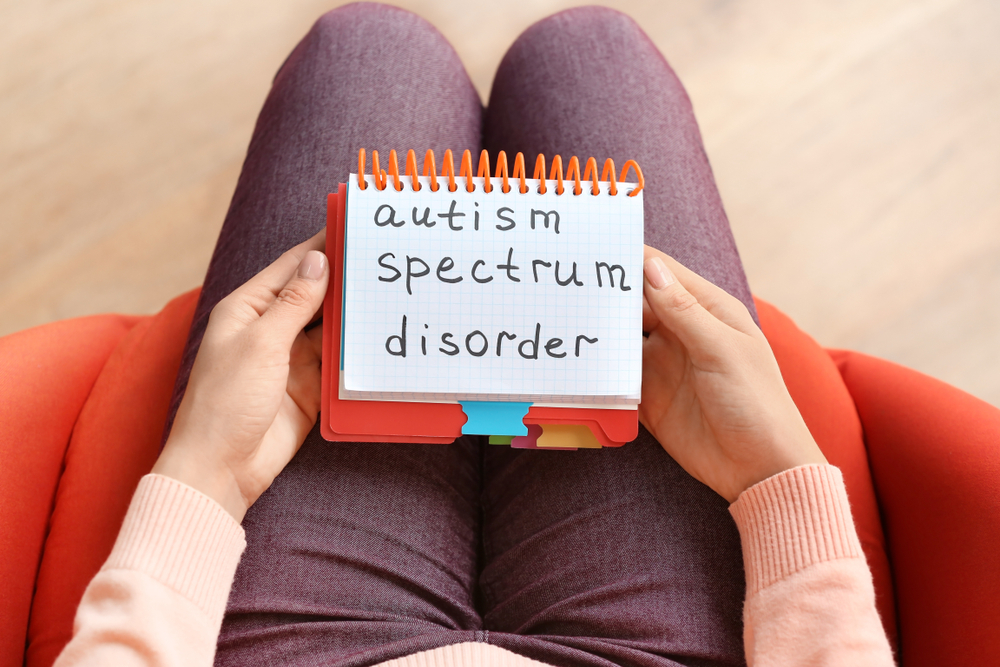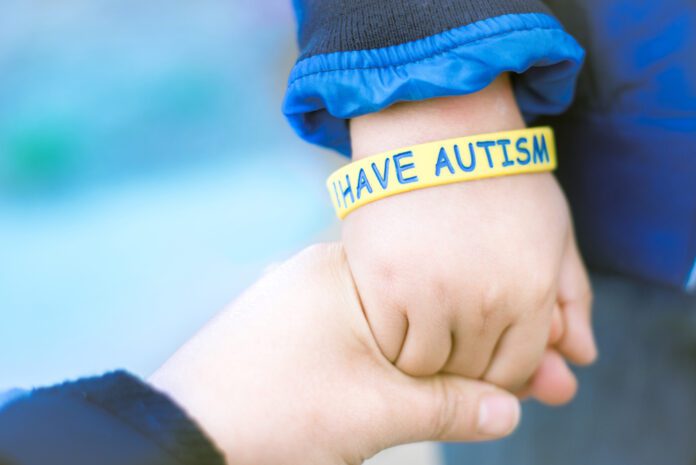Disability isn’t a taboo topic — at least it shouldn’t be. Yet when talking about it, select terms are often perceived as taboo. Interestingly, there’s much deliberation within the disability community — and specific sectors within it — regarding which expressions are (and are not) offensive. Words like cripple, handicapped, high/low-functioning, impairment, special needs and wheelchair-bound are considered demeaning by some, but not others. And within the autism community, people are debating the use of “autistic” versus “person with autism.” It’s time to chat about disability language…
Defining Disability Language and Terminology
Autism spectrum disorder (ASD) refers to a broad range of conditions characterized by challenges with social skills, repetitive behaviors, speech and nonverbal communication, according to Autism Speaks. The CDC reports that autism affects an estimated 1-in-44 children in the United States.
Long before this mounting discourse about acceptable autism-specific terminology, the diagnosis itself evolved. In fact, up until 2013, subtypes of autism (such as Asperger’s syndrome) were categorized as distinct disorders. Then, per the fifth edition of the American Psychiatric Association’s Diagnostic and Statistical Manual of Mental Disorders, all autism-related conditions were classified under the broad diagnosis of autism spectrum disorder.
Awareness and understanding of autism have shifted. And now self-advocates, disability allies and medical professionals are pondering a shift of applicable vocabulary too.

Person with Autism follows Person-First Language
In general, the use of Person-First Language (PFL) has been the favored approach. PFL centers on putting the person ahead of the disability diagnosis. It essentially cites the disability and/or diagnosis as something the person “has” rather than something that he/she/they “is.” Meaning PFL reinforces the position that a person is not defined by their disability. “People with disabilities” is PFL style versus “disabled people.”
Language can be very powerful, especially if and when it helps to break down stigmas. This may be especially true when it comes to mental health conditions. For example, saying “people with schizophrenia” versus the labeling of “schizophrenics.” When using PFL, it’s important to be mindful of connective adverbs. For example, the terms “suffers from” or “afflicted with” may feel degrading to some but, again, not to others. The basic use of “has” may be preferred by most (i.e. “he has cerebral palsy” rather than “he suffers from cerebral palsy.”)
Autistic follows Identity-First Language
The scientific/medical community may have initially led the way in establishing terminology – choosing to adopt PFL. And the media and community-at-large followed suit. Then people with autism started to speak up. In 2005, a group called the Aspies for Freedom established Autistic Pride Day (held annually in June). This observance is about reframing the negative perception of needing to ‘cure’ or ‘treat’ ASD and, rather, appreciating the unique and purposeful ways individuals who have ASD experience the world and contribute to society. You see, a doctor would likely refer to “patients with cancer” rather than “cancerous patients” because the goal is to cure or eliminate the disease. Whereas neurodiversity can’t be – norm needs to be – eliminated.
Many on the spectrum have declared a preference to be called “autistics.” This aligns with Identity-First Language (IFL), which puts the diagnosis or identity at the forefront. Some view IFL as a way to signify pride in one’s identity.

Spectrum of Disability Language Preferences
“Language is evolutionary. Because autism and the experiences of living with autism are varied and diverse, and individuals who self-advocate have preferences about how to describe their identity, we always recommend asking an individual what their preference is,” Christopher Banks, President and CEO of Autism Society of America, tells AmeriDisability. “The Autism Society honors and recognizes that both identifiers are valid, and organizationally our practice is to start written materials with person-first language, and use identity-first language as a secondary reference after the opening use. However, with direct content through interviews, livestreams, guest posts, etc., we will use a person’s preferred language identifiers,” Banks added.
A survey conducted in March 2022 by the digital resource Autistic Not Weird polled more than 11,000 people with or connected to ASD. Over 76% of respondents favored IFL, meaning a personal preference to be referred to as an “autistic person.” However, parents (without neurodiversity) of autistic children leaned toward “person with autism.” They feared that IFL could make their children feel labeled, limited or less than.
IFL is already widely accepted by other disability communities, such as “amputee” (over person with amputation) and “diabetic” (versus person with diabetes). And, like ASD, there are differing opinions and mixed feelings surrounding other disabilities. For example, some prefer “blind” or “blind person,” while others prefer “a person with blindness.” Similarly, some take offense to the term “paraplegic,” while some with paraplegia refer to themselves as a “para.”

Naturally, getting individuals and organizations on the same page doesn’t happen overnight, despite good intentions. The National Association of the Deaf notes that it supports IFL, but there’s discussion about capitalization. It is now common to see a capitalized “D” when referring to the culture and community of Deaf people. Regarding ASD, the writing style guide of the American Psychological Association continues to use “people with autism” despite the contrary direction of the ASD community to adopt IFL. Once a proponent of PFL, the National Center on Disability and Journalism (NDCJ) acknowledges that “no two people are the same — either with regard to disabilities or language preferences.” Thus, NDCJ now encourages media outlets to take a case-by-case approach, seeking feedback from individual sources.
The debate over disability language is clearly far from over and even further evolving. Some people strongly prefer PFL and others prefer IFL. But do we really all need to agree anyway… because isn’t embracing diversity and individuality acceptable? When in doubt, the best choice is to simply ask people about their preferences. And, perhaps, when speaking about a community as a whole, adopt the language that is preferred by the majority of the community.
Do you gravitate toward FPL or IFL? Share with us on Facebook, Twitter, Instagram and LinkedIn.






